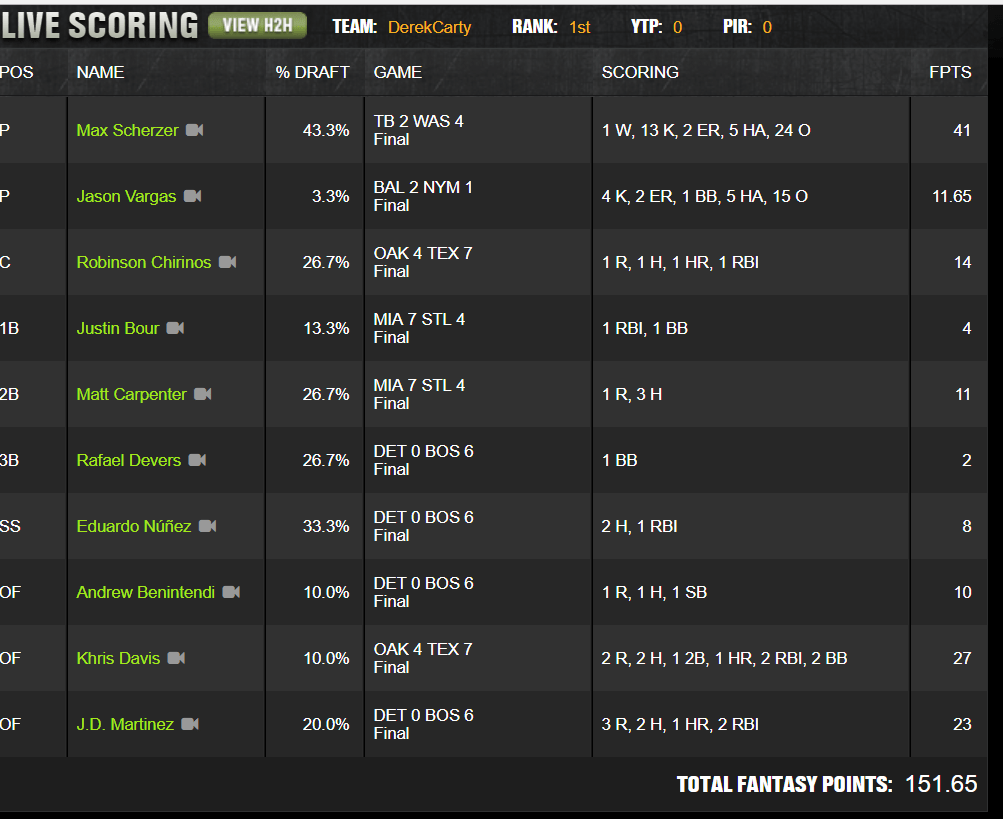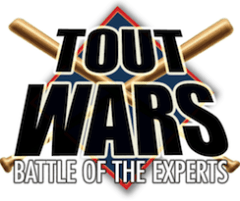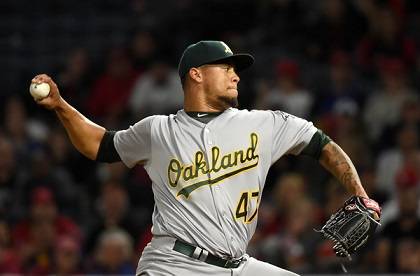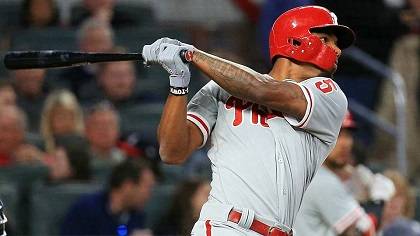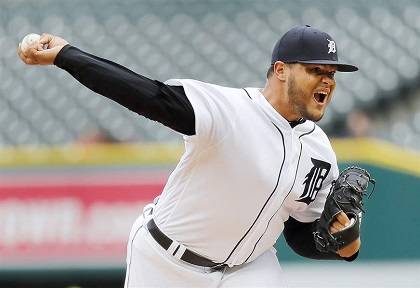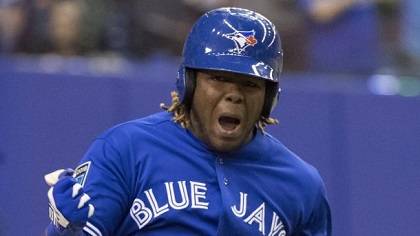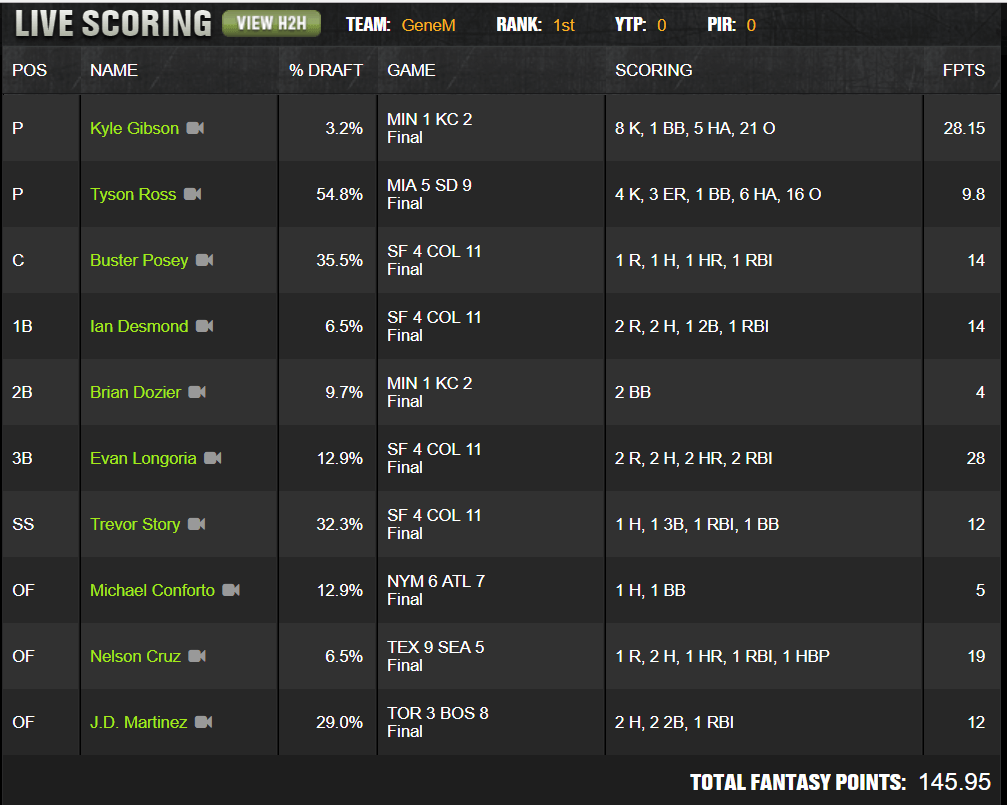Welcome to the weekly Tout Wars FAAB report, on its new home right here on the Tout Wars site. Each week, we’ll review the free agent acquisitions from all five leagues, with commentary from a league member, as well as yours truly. We changed the timing of the weekly run to 1 PM ET every Sunday, with the report posted later that afternoon so you’ll have time to digest and apply to your own leagues. In addition, I’ll be joining Lawr Michaels and Justin Mason on the Tout Wars Hour on the FNTSY Network every Sunday at 3:20 PM ET to discuss the results.
You can find the complete list of Tout Warriors here. Everyone starts with 1000 FAAB units, less any penalty incurred by finishing below a designated point in the standings. This is a means of keeping everyone motivated to keep playing all season long. The minimum bid is $0. FAAB units can be traded as well as rebated for players released off the DL.
The report will list all winning bids along with unsuccessful tries and contingencies. This provides the maximum level of information to help gauge interest on the players.
The American and National League only formats are 12-team leagues, as is the new points-based head to head league, The Mixed Auction and Draft each have 15 clubs. All the leagues have four reserves with an unlimited DL, expect the head to head league, which allows six reserves.
The headings above each league are links to publicly accessible sites where you can see standings, roster and a complete review of transactions. The initial auctions and drafts can be found here.
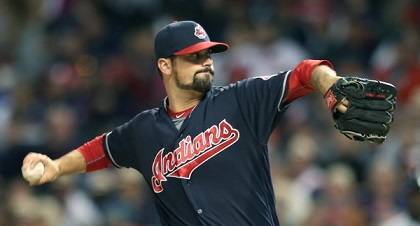
AMERICAN LEAGUE
SUCCESSFUL BIDS
| PLAYER |
WINNING BID |
|
|
| APlutko, Cle |
Larry Schechter 312 |
Jeff Erickson 107 |
Chris Liss 79 |
|
|
Jason Collette 60 |
Lawr Michaels 37 |
|
|
Vlad Sedler 23 |
Doug Dennis 9 |
|
|
Rick Wolf/Glenn Colton 1 |
|
| DCovey, CWS |
Larry Schechter 75 |
Seth Trachtman 5 |
Rick Wolf/Glenn Colton 1 |
| DHess, Bal |
Lawr Michaels 37 |
Larry Schechter 75 |
|
| CTilson, CWS |
Rick Wolf/Glenn Colton 26 |
Vlad Sedler 23 |
Chris Liss 11 |
| BSwihart, Bos |
Chris Liss 22 |
Rob Leibowitz 15 |
Vlad Sedler 14 |
|
|
Larry Schechter 1 |
|
| DVogelbach, Sea |
Rob Leibowitz 21 |
Seth Trachtman 0 |
|
| JRondon, CWS |
Vlad Sedler 16 |
Rob Leibowitz 14 |
Rick Wolf/Glenn Colton 0 |
| GPetit, Min |
Rob Leibowitz 7 |
|
|
| CRoe, TB |
Rick Wolf/Glenn Colton 6 |
Larry Schechter 74 |
Doug Dennis 0 |
| SLeon, Bos |
Vlad Sedler 4 |
Larry Schechter 2 |
|
| TKahnle, NYY |
Vlad Sedler 3 |
Chris Liss 2 |
Doug Dennis 0 |
| NRamirez, LAA |
Rob Leibowitz 2 |
|
|
| BKeller, KC |
Seth Trachtman 0 |
|
|
| JVenters, TB |
Doug Dennis 0 |
Rob Leibowitz 3 |
|
| ARomine, NYY |
Larry Schechter 0 |
|
|
UNAWARDED BIDS
| PLAYER |
|
|
|
| RGoins, KC |
Rob Leibowitz 5 |
Vlad Sedler 2 |
|
| RTorres, KC |
Vlad Sedler 4 |
|
|
| CBYoung, LAA |
Rob Leibowitz 3 |
Chris Liss 0 |
|
| RTellez, Tor |
Vlad Sedler 2 |
|
|
| DSmithJr, Tor |
Rob Leibowitz 1 |
Chris Liss 0 |
|
| RStanek, TB |
Rick Wolf/Glenn Colton 0 |
|
|
| TraThompson, CWS |
Rick Wolf/Glenn Colton 0 |
|
|
| CPerez, Tex |
Larry Schechter 0 |
|
|
| GGreiner, Det |
Larry Schechter 0 |
|
|
| JSucre, TB |
Larry Schechter 0 |
|
|
| RoPerez, Cle |
Larry Schechter 0 |
|
|
| AClaudio, Tex |
Doug Dennis 0 |
|
|
Todd’s Commentary and Take
Larry Schechter lead the way this week with the top two bids, each on a starting pitcher. Adam Plutko was the big fish as he has two starts this week. The Indians right-hander takes the spot of Josh Tomlin, banished to the bullpen. Plutko’s had two solid outings with the Tribe, wrapped around three with Triple-A Columbus. In the pitching-starved AL Tout, he’s worth a dice roll for those needing whiffs with a chance at a win.
I’m less optimistic about Dylan Covey, though his velocity has increased so there’s something tangible to hang your speculative hat on.
Lawr Michaels also went for an arm, landing David Hess. I like Hess more than Covey but not as much as Plutko – granted, that’s not saying much.
Hitters grabbed the next two spots. The tag-team of Rick Wolf and Glenn Colton snagged Charlie Tilson, the next White Sox center fielder, a position about as stable as Spinal tap’s drummer. Has things gone as planned last season, Tilson could have been the opening day center fielder, but he lost 2017 due to injury. He has some speed if you’re looking for some bags.
Chris Liss is hoping it isn’t just manager-speak when Alex Cora said he’ll be using Swihart more behind the plate as well as at first base. This playing time should be more than most backup receivers. Swihart’s development has been slowed bu injury, but coming up as a product he was thought to have a plus hit tool, which will come in handy in a deep Red Sox lineup.

NATIONAL LEAGUE
SUCCESSFUL BIDS
| PLAYER |
WINNING BID |
|
|
| CBuchholz, Ari |
Phil Hertz 124 |
Andy Behrens 43 |
Todd Zola 37 |
|
|
Grey Albright 11 |
Steve Gardner 5 |
| JBautista, NYM |
Brian Walton 35 |
Steve Gardner 22 |
Lenny Melnick 9 |
|
|
Phil Hertz 1 |
Derek Carty 1 |
|
|
Tristan H. Cockcroft 0 |
|
| EHernandez, Mia |
Todd Zola 33 |
|
|
| LGarcia, Phi |
Brian Walton 12 |
Phil Hertz 17 |
Craig Mish 7 |
| JRiddle, Mia |
Grey Albright 11 |
Brian Walton 32 |
Phil Hertz 5 |
| SBrito, Ari |
Lenny Melnick 9 |
Phil Hertz 4 |
Brian Walton 2 |
| BDixon, Cin |
Phil Hertz 5 |
Brian Walton 2 |
Steve Gardner 1 |
| KTomlinson, SF |
Scott Wilderman 5 |
Derek Carty 0 |
Andy Behrens 0 |
| VArano, Phi |
Phil Hertz 5 |
Brian Walton 2 |
Phil Hertz 1 |
| SBaron, StL |
Andy Behrens 2 |
|
|
| AAlzolay, ChC |
Craig Mish 2 |
|
|
| DHernandez, Cin |
Brian Walton 2 |
Phil Hertz 3 |
|
| JFields, LAD |
Andy Behrens 0 |
Brian Walton 2 |
Phil Hertz 0 |
| EKratz, Mil |
Phil Hertz 0 |
|
|
| PBaez, LAD |
Andy Behrens 0 |
|
|
| GGarcia, StL |
Steve Gardner 0 |
|
|
UNAWARDED BIDS
| PLAYER |
|
|
|
| ESogard, Mil |
Brian Walton 2 |
Phil Hertz 1 |
|
| RRosario, ChC |
Brian Walton 2 |
|
|
| TRainey, Cin |
Brian Walton 2 |
|
|
| TWilliams, Mil |
Brian Walton 2 |
|
|
| EFedde, Was |
Phil Hertz 1 |
|
|
| DFloro, Cin |
Phil Hertz 0 |
|
|
| MLorenzen, Cin |
Phil Hertz 0 |
|
|
| SCishek, ChC |
Phil Hertz 0 |
|
|
| STuivailala, StL |
Phil Hertz 0 |
|
|
| TLyons, StL |
Phil Hertz 0 |
|
|
| WSmith, SF |
Phil Hertz 0 |
|
|
| BHoladay, Mia |
Andy Behrens 0 |
|
|
| DanJennings, Mil |
Andy Behrens 0 |
|
|
| SKieboom, Was |
Andy Behrens 0 |
|
|
| TNido, NYM |
Andy Behrens 0 |
|
|
Brian Walton’s Commentary
The holiday weekend edition of National League Tout Wars bidding was relatively quiet – especially compared to the prior period when nearly $2000 was spent by owners chasing Juan Soto and the like.
This time around, former Red Sox pitching disappointment Clay Buchholz is in the headline – back in the majors with Arizona after getting out of his minors deal with the Royals. Two starts – against the Mets and A’s – with just two runs yielded in 11 innings has raised the hopes of some. Others look at the modest five strikeouts and move past.
Phil Hertz of BaseballHQ jumped in with both feet with his winning bid of $124. That destroyed two other offers in the $30’s and $40’s and several other lower bids.
Being last in home runs and second to last in RBI means I have to take chances to improve. This week that meant going after Joey Bats, who is just about out of his nine lives. I paid $35 for what may be part-time at-bats in his latest role in the Mets outfield. Mike Gianella of Baseball Prospectus had dropped Bautista when he was released by Atlanta after a failed trial as a third baseman.
Like Buchholz, Miami Rule 5 pick Elieser Hernandez is not a strikeout master, but the 23-year old is off to a nice, though belated start to his 2018. He opened the season on the DL after an emergency dental procedure. With a 1.80 ERA through five starts, the right-hander joined Lord Zola’s roster for $33 in an uncontested bid.
Speaking of Hernandezes, David received more attention than Elieser this week, though for less money. At this point, who will be getting saves in Cincinnati while Raisel Iglesias is out is anyone’s guess. I spent $2 in hopes it might be David.
Perhaps even cloudier is the Philly ninth-inning situation. Gianella had previously tried to corner the market of reasonable alternatives, but I grabbed Luis Garcia for $12 and Hertz added Victor Arano for $5. With Gabe Kapler calling the shots, who is to tell?
Todd’s Take
I can specifically recall an Arizona First Pitch Forum discussion, debating which Clayton would be better, Kershaw or Buchholz. Good times.
Team Mastersball put it’s three closers on the market this week — getting some nibbles and perhaps even bites as I have until first pitch on Monday to consummate a deal. It’s an odd market for saves as four teams are still in single digits. If I’m going to make a move, I need my hitting to improve organically while converting saves to starters. of course, now all my competitors knows this — assuming they’re reading.
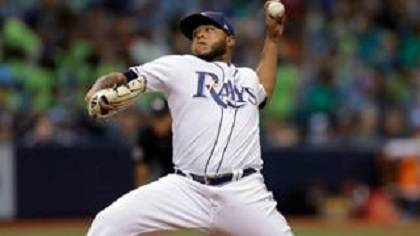
MIXED LEAGUE AUCTION
SUCCESSFUL BIDS
| PLAYER |
WINNING BID |
|
|
| JAlvarado, TB |
Tim McLeod 260 |
Brent Hershey 112 |
Joe Pisapia 106 |
|
|
Jeff Zimmerman 104 |
Al Melchior 38 |
|
|
Ray Flowers 23 |
|
| TONeill, StL |
Al Melchior 226 |
Joe Pisapia 155 |
Scott Engel 99 |
|
|
Jeff Zimmerman 14 |
Tim Heaney 13 |
| MarkReynolds, Was |
Brent Hershey 84 |
Ray Flowers 6 |
Tim Heaney 0 |
| JHughes, Cin |
Ron Shandler 78 |
Scott Engel 49 |
Tim McLeod 43 |
|
|
Scott Pianowski 31 |
Ray Flowers 29 |
|
|
Derek VanRiper 22 |
Tim Heaney 16 |
|
|
Jeff Zimmerman 0 |
|
| CRoe, TB |
Al Melchior 64 |
Ray Flowers 17 |
|
| YSanchez, CWS |
Scott Engel 59 |
Zach Steinhorn 17 |
Tim Heaney 0 |
| MMaldonado, LAA |
Zach Steinhorn 57 |
|
|
| WLeBlanc, Sea |
Scott Swanay 54 |
Scott Engel 44 |
Ray Flowers 23 |
| JBradley, Bos |
Scott Swanay 48 |
Tim Heaney 5 |
|
| AEngel, CWS |
Ron Shandler 47 |
|
|
| APlutko, Cle |
Scott Engel 44 |
Fred Zinkie 22 |
Derek VanRiper 22 |
|
|
Ray Flowers 13 |
Ron Shandler 1 |
| RGuzman, Tex |
Scott Engel 44 |
Joe Pisapia 22 |
Ray Flowers 6 |
| FGalvis, SD |
Zach Steinhorn 36 |
|
|
| SBieber, Cle |
Tim McLeod 29 |
|
|
| RYarbrough, TB |
Ray Flowers 26 |
Scott Swanay 54 |
Tim McLeod 46 |
|
|
Zach Steinhorn 22 |
Scott Engel 22 |
|
|
Ron Shandler 5 |
Al Melchior 0 |
| TSaladino, Mil |
Al Melchior 25 |
Scott Engel 23 |
Ron Shandler 21 |
|
|
Tim Heaney 0 |
Fred Zinkie 0 |
| MMuncy, LAD |
Derek VanRiper 22 |
Scott Engel 31 |
Ray Flowers 6 |
| GParra, Col |
Fred Zinkie 21 |
|
|
| BSuter, Mil |
Zach Steinhorn 18 |
Scott Swanay 44 |
Tim Heaney 7 |
|
|
Scott Pianowski 3 |
|
| MDuffy, TB |
Ray Flowers 17 |
Scott Swanay 28 |
Tim Heaney 1 |
| TGlasnow, Pit |
Ray Flowers 13 |
|
|
| WAdames, TB |
Tim Heaney 8 |
|
|
| MKoch, Ari |
Scott Pianowski 5 |
Scott Engel 35 |
Ron Shandler 1 |
| JMurphy, Ari |
Tim McLeod 4 |
|
|
| ELauer, SD |
Jeff Zimmerman 4 |
|
|
| MTaylor, Was |
Jeff Zimmerman 2 |
|
|
| MCabrera, Cle |
Joe Pisapia 2 |
Ron Shandler 5 |
Tim Heaney 0 |
| JShields, CWS |
Al Melchior 0 |
|
|
| JBautista, NYM |
Tim Heaney 0 |
|
|
| SLugo, NYM |
Tim Heaney 0 |
|
|
UNAWARDED BIDS
| PLAYER |
|
|
|
| NWilliams, Phi |
Al Melchior 41 |
|
|
| TKemp, Hou |
Al Melchior 41 |
Derek VanRiper 22 |
Scott Engel 21 |
| TAustin, NYY |
Brent Hershey 35 |
|
|
| JWendle, TB |
Scott Engel 34 |
|
|
| NHundley, SF |
Zach Steinhorn 28 |
Tim McLeod 3 |
|
| GoHernandez, SF |
Ron Shandler 27 |
|
|
| JMercer, Pit |
Zach Steinhorn 21 |
|
|
| HPerez, Mil |
Ray Flowers 17 |
|
|
| KMorales, Tor |
Ray Flowers 17 |
Tim Heaney 1 |
|
| AEscobar, KC |
Zach Steinhorn 13 |
|
|
| JFields, LAD |
Ray Flowers 13 |
|
|
| JKelly, Bos |
Ray Flowers 13 |
|
|
| PSeverino, Was |
Zach Steinhorn 13 |
|
|
| CVazquez, Bos |
Zach Steinhorn 12 |
|
|
| LBrinson, Mia |
Tim Heaney 8 |
|
|
| ONarvaez, CWS |
Zach Steinhorn 7 |
|
|
| AdGonzalez, NYM |
Ray Flowers 6 |
|
|
| DValencia, Bal |
Ray Flowers 6 |
|
|
| DCovey, CWS |
Ron Shandler 5 |
|
|
| HDozier, KC |
Ron Shandler 5 |
|
|
| SGaviglio, Tor |
Ron Shandler 5 |
|
|
| BMcCarthy, Atl |
Scott Pianowski 4 |
|
|
| RRodriguez, Pit |
Scott Swanay 2 |
|
|
| CBuchholz, Ari |
Ron Shandler 1 |
|
|
| BHolt, Bos |
Scott Engel 0 |
|
|
| BKeller, KC |
Al Melchior 0 |
|
|
| EGonzalez, Cle |
Scott Engel 0 |
|
|
Todd’s Commentary and Take
The eternal quest for saves. This week, the targets are the Rays and Reds as Alex Colome is now with the Mariners while Raisel Iglesias is on the DL. Jose Alvarado is the Tout’s leading candidate to get the job done in the ninth with Jared Hughes the secondary choice. Chaz Roe is also in the mix with Tampa.
Tyler O’Neill was the top stick, perhaps buoyed by the chance Dexter Fowler lands on the DL.
Ryan Yarbrough drew a lot of attention, deservedly so. Not only has he been pitching well, he’s in a better position to grab a win as the follower and not the opener.

MIXED LEAGUE DRAFT
SUCCESSFUL BIDS
| PLAYER |
WINNING BID |
|
|
| TONeill, StL |
Perry Van Hook 123 |
|
|
| RGuzman, Tex |
Gene McCaffrey 68 |
Adam Ronis 12 |
|
| ZWheeler, NYM |
Ray Murphy 48 |
|
|
| DDuffy, KC |
Ray Murphy 38 |
|
|
| JAlvarado, TB |
Adam Ronis 23 |
Tom Kessenich 11 |
Perry Van Hook 2 |
| NTropeano, LAA |
Perry Van Hook 11 |
Tom Kessenich 1 |
|
| DMesoraco, NYM |
Adam Ronis 3 |
|
|
| EHernandez, LAD |
Greg Ambrosius 1 |
|
|
| CKuhl, Pit |
Tom Kessenich 1 |
|
|
UNAWARDED BIDS
| PLAYER |
|
|
|
| MarkReynolds, Was |
Gene McCaffrey 48 |
|
|
| NEovaldi, TB |
Ray Murphy 8 |
|
|
| ARosario, NYM |
Adam Ronis 8 |
|
|
| JHughes, Cin |
Adam Ronis 8 |
|
|
| LBrinson, Mia |
Gene McCaffrey 3 |
|
|
| RRodriguez, Pit |
Tom Kessenich 1 |
|
|
| DDietrich, Mia |
Perry Van Hook 0 |
Gene McCaffrey 0 |
|
| AEngel, CWS |
Perry Van Hook 0 |
|
|
| RDavis, Cle |
Perry Van Hook 0 |
|
|
Perry Van Hook’s Commentary
Who Knew? That only six of the fifteen teams would be bidding this weekend? That none of the other five thought Tyler O’Neill was even worth a bid? That I could have saved $122 of my $123 winning bid on O’Neill? The next highest bid will be challenged on instant replay but Gene McCaffrey won Texas 1B Ronald Guzman for $68. I didn’t think there was a lot of pitching help available this week, so I added Nick Tropeano of the Angels for $11 and had also bid on potential Tampa closer Jose Alvarado. Of course I wasn’t looking at pitchers formerly on my team but Ray Murphy was and added Zack Wheeler for $48 and Danny Duffy for $38.
Todd’s Take
The calm after the storm. As Perry suggests, it was a quiet period for the Mixed Drafters. Even the closer of the week, Alvarado, drew just four tries.
Guzman had a heck of a month this past week. Of course, he did it the week after I jettisoned him in Mixed LABR, but that’s a sort for a different report. He’s bought himself a longer leash as the Rangers are moving parts around, using Joey Gallo in left and Isiah Kiner-Falefa at third.

HEAD-TO-HEAD MIXED AUCTION
SUCCESSFUL BIDS
| PLAYER |
WINNING BID |
|
|
| MGonzales, Sea |
Kyle Elfrink 79 |
Clay Link 58 |
Dr. Roto 12 |
|
|
Howard Bender 8 |
|
| DMengden, Oak |
Andrea LaMont 59 |
Michael Rathburn 21 |
|
| RGuzman, Tex |
Andrea LaMont 49 |
Dr. Roto 32 |
Michael Rathburn 3 |
| JCandelario, Det |
Dr. Roto 41 |
|
|
| MAdams, Was |
Clay Link 35 |
Dr. Roto 22 |
|
| MWilliamson, SF |
Dr. Roto 32 |
|
|
| APlutko, Cle |
Peter Kreutzer 23 |
Dr. Roto 4 |
Michael Rathburn 3 |
| MBoyd, Det |
Peter Kreutzer 23 |
Clay Link 22 |
Michael Rathburn 3 |
|
|
Justin Mason 1 |
|
| JMercer, Pit |
Peter Kreutzer 14 |
|
|
| BNimmo, NYM |
Andrea LaMont 13 |
Clay Link 26 |
Michael Rathburn 4 |
|
|
Peter Kreutzer 0 |
|
| RYarbrough, TB |
Dr. Roto 11 |
|
|
| MMaldonado, LAA |
Michael Rathburn 6 |
|
|
| BMcCarthy, Atl |
Howard Bender 4 |
Peter Kreutzer 17 |
Michael Rathburn 3 |
|
|
Clay Link 3 |
|
| SMatz, NYM |
Michael Rathburn 3 |
Peter Kreutzer 7 |
|
| HBailey, Cin |
Michael Rathburn 3 |
|
|
| BParker, LAA |
Clay Link 2 |
|
|
| GoHernandez, SF |
Michael Rathburn 1 |
|
|
| BZobrist, ChC |
Peter Kreutzer 0 |
|
|
| DFister, Tex |
Justin Mason 0 |
|
|
UNAWARDED BIDS
| PLAYER |
|
|
|
| TONeill, StL |
Dr. Roto 22 |
Clay Link 17 |
|
| ELauer, SD |
Kyle Elfrink 15 |
|
|
| WLeBlanc, Sea |
Andrea LaMont 12 |
|
|
| FBarreto, Oak |
Peter Kreutzer 8 |
|
|
| MRojas, Mia |
Peter Kreutzer 7 |
|
|
| JAlvarado, TB |
Dr. Roto 4 |
Clay Link 1 |
|
| NWilliams, Phi |
Dr. Roto 3 |
|
|
| DMesoraco, NYM |
Michael Rathburn 1 |
|
|
| BAnderson, Mia |
Peter Kreutzer 0 |
|
|
| NEovaldi, TB |
Justin Mason 0 |
|
|
Todd’s Take and Commentary
As opposed to the other leagues, there’s a lot of action in the Head to Head league. Of course, there’s only 12 teams which explains why some of these players are available.
Marco Gonzales was the prize as he’s lined up with a pair of decent starts this week coming off a couple of solid efforts. The Mariners didn’t acquire Gonzales as a throw in – he’s expected to be a rotation piece. Maybe he’s finally beginning to show why.
Jeimer Candelario and Mac Williamson are both recently activated from the DL. Both are full time players thus viable for leagues as shallow as ten-team mixed.
I like the pickups of Matt Adams and Brandon Nimmo for a stealth reason. By rule, both have to be active for the full week, but after that, they can be spotted on and out mid-week as the H2H league has Friday moves. Lefty platoon hitters are nice when a team has a series facing all righty throwers.
